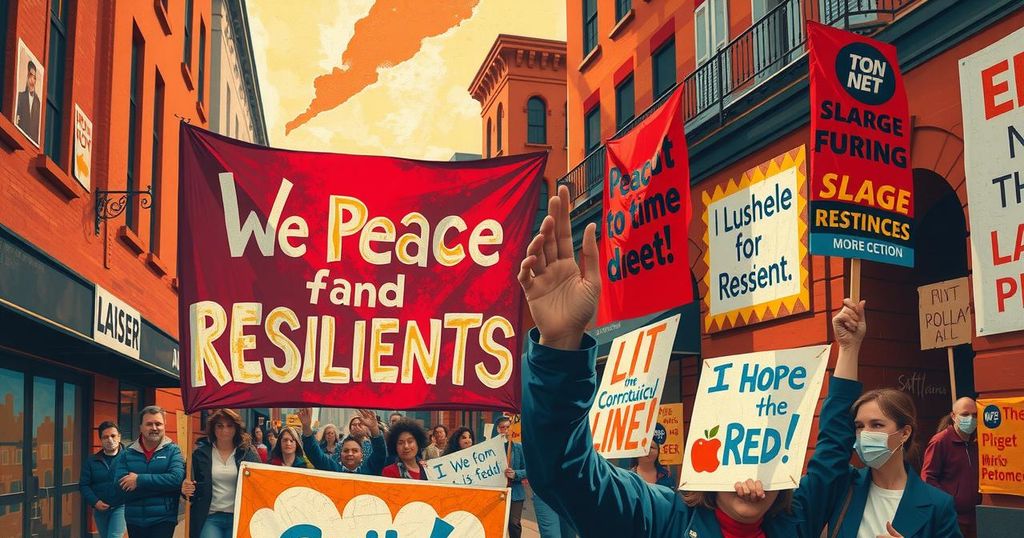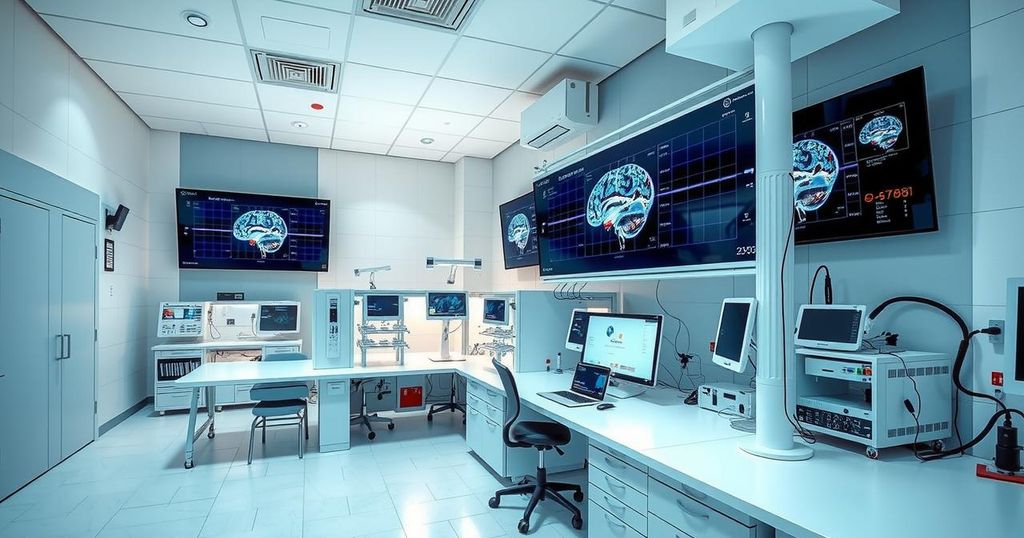Iran Protests Surge Amid Rising Human Rights Abuses and Security Concerns
In June 2025, widespread protests in Iran spotlight discontent over the regime’s failing policies amidst severe economic hardship. International exhibitions in several European cities condemned human rights abuses. Additionally, three Iranians face trial in the UK for espionage. Incidents of violent crime highlight growing public insecurity. Activists warn of the regime’s potential nuclear ambitions, reflecting ongoing unrest and calls for justice.
On June 9, 2025, Iran is once again a hotbed of unrest as protests have erupted in several cities. This surge of demonstrations has been fueled primarily by retirees, workers, and boat owners rallying against the government’s failing policies amid persistent economic hardships. The discontent is palpable as citizens voice their frustrations over rampant corruption and the regime’s oppressive tactics.
In Zahedan, a city that faces stringent repression, members of the PMOI Resistance Units have taken action to confront the intimidation tactics of the regime. Their bold activities come in a context of ongoing executions aimed specifically at the Baluch citizens—these operations are, quite frankly, a risky endeavor but reflect the determination of the Iranian people to resist.
On June 7, significant exhibitions took place in multiple European cities like Bucharest, Rostock, and Berlin. These events were organized by supporters of the PMOI/MEK and aimed to highlight severe human rights abuses dictated by the Iranian government. They protested against the imposition of death sentences on political detainees and sought to amplify demands for their release.
In Bucharest, supporters called attention to the Iranian regime’s escalating repression, while in Rostock, demonstrators pressed for global recognition of these human rights atrocities. The rallies included calls for international courts to bring the regime’s leaders to justice for crimes against humanity. Berlin’s exhibition similarly condemned the state’s ongoing extrajudicial actions.
Furthermore, across the English Channel, three Iranian nationals are facing serious charges in the UK. A preliminary hearing at the Old Bailey revealed that these men have been accused of espionage on behalf of Tehran’s intelligence services. Their trial is set for October 2026, with defense lawyers indicating their clients will plead “not guilty.”
The state of public safety in Iran has sharply deteriorated. The tragic murders of Amir Mohammad Khaleghi and Elaheh Hosseinnejad highlight an alarming societal breakdown, provoking fear among the public. This wave of crime is a grim reminder of the governmental neglect exacerbated by economic despair.
In a chilling exposé, a resistance fighter has outlined a disturbing reality: the Iranian regime has been systematically executing a regional repression strategy. They begin testing intense measures in select provinces, and if successful, they extend these to surrounding areas—a deceptive model of control that needs addressing.
Moreover, the narrative surrounding the regime’s nuclear ambitions cannot be ignored. An activist known as Fereshteh, who tragically lost her sister to the regime’s violent crackdown, expressed concerns about the potential for Iran wielding nuclear capability against its foes—a statement that underscores the urgent need for international attention and action. She has become involved with the PMOI/MEK resistance units, aiming to undermine the regime from within, signifying an ongoing struggle among the Iranian populace.
As protests continue and human rights abuses escalate, the situation in Iran remains precarious. With civil unrest being met by state repression and international concerns mounting over potential nuclear threats, the Iranian people’s fight for dignity and justice is pressing. Events in Europe reflect a broader global awareness of Iran’s internal crises, while local reactions signify an urgent call for change. The struggle against a regime mired in corruption, economic collapse, and despotism persists, revealing the fierce resilience of the Iranian people.
Original Source: www.ncr-iran.org




Post Comment